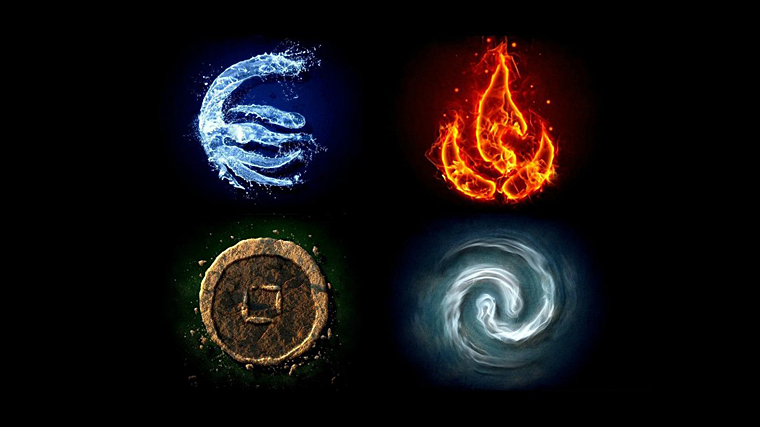
It was with good reason that wise ancients designated four primal elements of existence: earth, air, fire and water. Many make the confused mistake of assuming that past cultures thought of elements the same way we modern people do, scientifically. However, while correspondences can be found within our modern science, the four primal elements were viewed as the building blocks of all things, including human life; material, psychological, spiritual and alchemical in nature.
Earth is the element of material things; rocks, trees and mountains, human beings, plants and all animals. It is the ground of our existence; Star Trek’s aliens correctly called us carbon-based units.
Air is the element of circulation; the wind in the trees, the breath that brings the oxygen we breathe and circulates it to each individual cell. Some say we are intelligent, walking, air-filtration units. Speech is utterly silent in the absence of air.
Fire is the element of transformation; it powers the sun, turns wood to charcoal. Scientists speculate that a fiery bolt of lightening on a primordial earth may have created the first self-generating folded protein of life. Our bodies are warmed by the chemical fire within us as glucose is oxidized and releases energy. In the “Matrix” movies, people have been turned into AA batteries.
Water is the element of nourishment and sustenance. It is the liquid that falls from the sky, it hurries the creeks and fills the oceans. It is mothers’ milk of life and the blood and body fluids within us that temper our internal fire and satisfies thirst. By now there must have been 100 New Yorker cartoons about a thirsty man crawling in the desert…and finding an insurance agent.
Our creative self is obsessed by the power and meaning of primal elements. They form a deep thematic and imagistic thread running through movie scripts, books, cartoons, advertisements, all forms of media, and our own personal narratives. The power of earth, air, fire and water fill both the physical world and the metaphysical world of imagination. They are so embedded within our minds and culture that they are virtually transparent to our consciousness; we are aware of them and feel their impact without having to think about them. The primal elements convey meaning at the subconscious emotional level, where we absorb and express them.
When angry, we feel the fire and heat of passion; our cheeks redden, our temperature rises; sometimes we explode. We stomp our feet or slam our hand down on the table to ground and associate ourselves with the solidness of earth (in 1960, Soviet Premier Nikita Kruschchev pounded his shoe on his desk at the U.N.). Our voices rise as wind storms from our lungs; we sigh deeply. Finally, completely spent, we have a cup of tea; a glass of wine or water cools our passion. You’ll find the four elements at work in pleasure too, and in all things we humans do. The elemental qualities unite us with our world; they operate around, inside and through us.
The next time you plop down on the couch, watch the glowing electron fire of TV, knock back an ice-cold beer, and sigh deeply in relaxation, stop – if just for a moment. Feel earth, air, fire and water generating the vitality, energy and spirit within you.